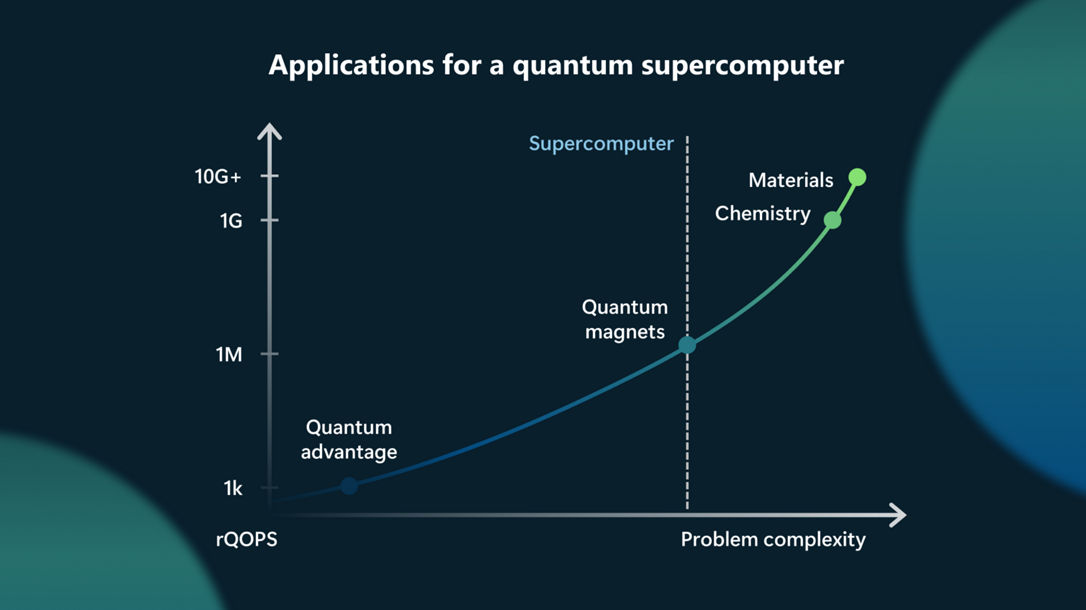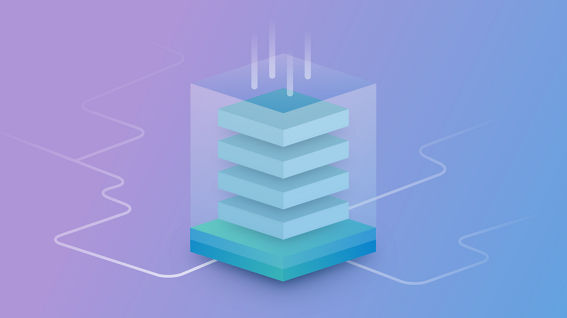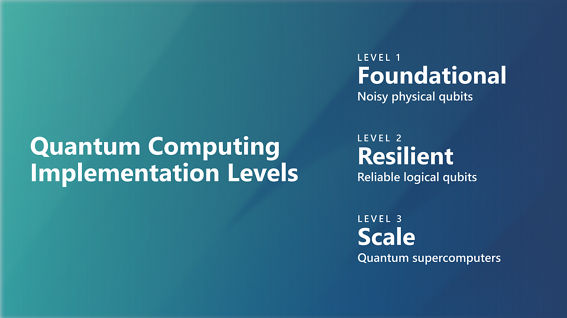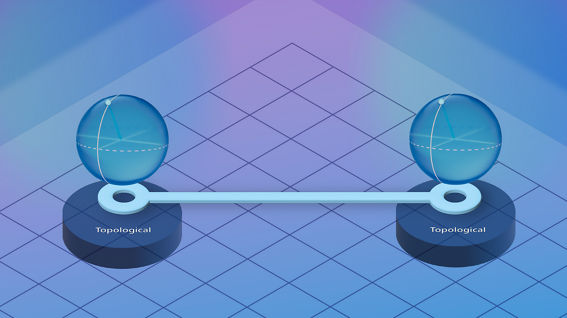As our industry looks ahead to future quantum supercomputers, we need to define a good figure of merit that captures what a quantum supercomputer can do. This measure of a supercomputer’s performance should help people understand how capable the system is in solving impactful problems. Microsoft is offering such a figure of merit: reliable Quantum Operations Per Second (rQOPS), which measures how many reliable operations can be executed in a second.
The rQOPS metric considers the full system performance, as opposed to just qubit performance, so there is an assurance that an algorithm will run correctly. It is a unit of computational effort defined by the number of logical qubits in a quantum system multiplied by the logical clock frequency of the system. An rQOPS is expressed with a corresponding logical error rate, which indicates the maximum tolerable error rate of the operations on the logical qubits.
[continued below]

The rQOPS accounts for the three key factors of scale, speed, and reliability: scale through the number of reliable qubits; speed through the dependence on the clock speed; and reliability through the very small logical error rates, which get achieved by error correction. Combining these aspects provides a simple way to capture the overall capability of a system to run reliable logical quantum operations. That’s why Microsoft has proposed rQOPS as a way to measure the performance of future quantum supercomputers defined in Level 3, Scale, of the Quantum Computing Implementation Levels.
To facilitate calculating how many rQOPS a quantum algorithm will require, the Azure Quantum Resource Estimator now calculates the metric for the user’s choice of algorithm and quantum hardware architecture.
For more information on rQOPS, read our blog on the topic.





